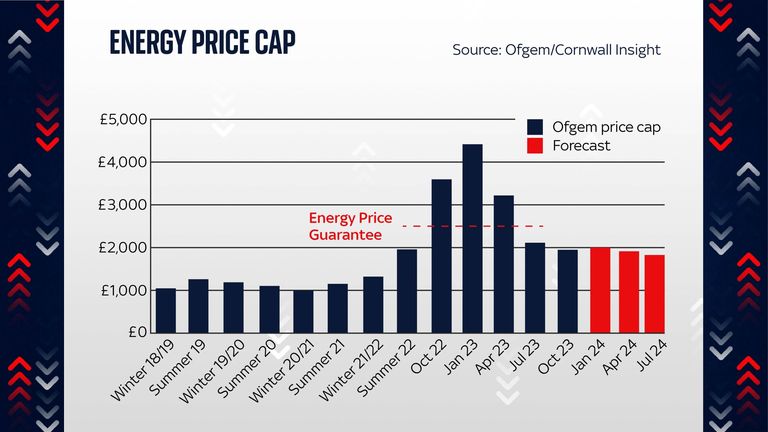Average energy bill to fall below £2,000 for first time since early 2022


The energy regulator has confirmed a cut to its price cap that will see average household bills come down this autumn, as experts continue to warn of hikes to come during the winter months.
Ofgem said the typical household paying by direct debit for gas and electricity faced an annual charge of £1,923 from October to December.
That was down from the £2,074 level set for the three months to the end of September, bringing some further relief to consumers still grappling with the effects of the energy-driven cost of living crisis.
The reduction is largely explained by weaker wholesale prices.
The price cap would have been lower still, by a further £100, if it had reflected a looming Ofgem calculation that gives a nod to reduced energy use.
Household consumption has fallen sharply following the bill shocks of the past 18 months.
However, there are warnings from industry forecasts that peak winter will likely see bills rise back above the £2,000 mark.
Read more:
Cost of living latest – as supermarket cuts prices
Meanwhile, a thinktank has declared millions of the poorest households will pay more despite the price cap cut.
Advertisement
The Resolution Foundation blamed the withdrawal of energy support schemes and a rise in charges added to bills.
The price cap sets a limit on the amount suppliers can charge for each unit of gas and electricity used and for the privilege of being connected to the energy network. The more you use, the more you pay.
Even at the reduced cap mark, it remains about £800 above 2019 levels at a time when families are dealing with high inflation and higher housing costs – mostly as a consequence of interest rate rises by the Bank of England intended to dull the pace of price rises in the economy.